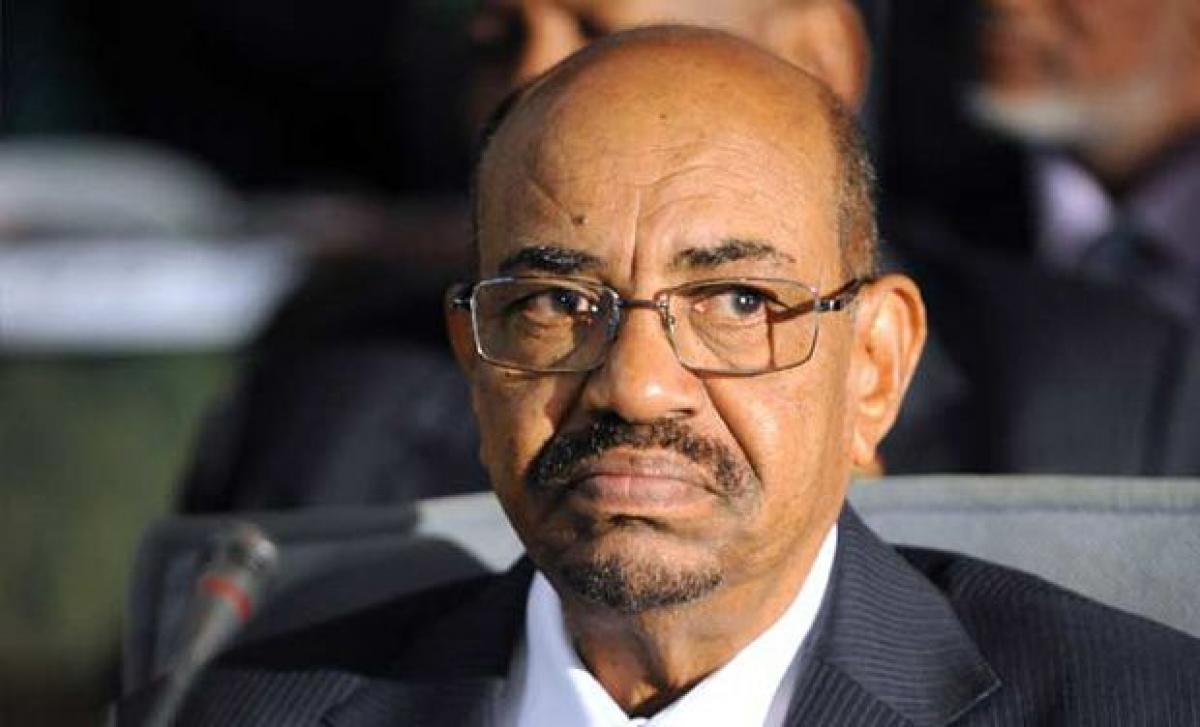Live
- GMR Airports Unveils AI-Powered Digital Twin Platform to Transform Airport Operations
- India poised to become leading maritime player: PM Modi
- Top Causes of Kidney Stones and How to Recognize Silent Symptoms
- India’s renewable energy capacity logs 14.2 pc growth at 213.7 GW
- Winter Session of Odisha Assembly adjourned sine die
- Biden calls Trump's tariff approach 'major mistake'
- After Drama Over Eknath Shinde’s Chief Minister Race, Maharashtra Cabinet Formation Faces New Tensions
- Egyptian FM, Blinken discuss recent developments in Syria
- Iran's supreme leader says Syria's developments result of US-Israeli 'plot'
- Elon Musk to Purchase $100 Million Luxury Mansion Next to Donald Trump's Mar-a-Lago, Report Reveals
Just In

x
Highlights
Sudanese President Omar al-Bashir flew out of South Africa on Monday, defying a court order for him to stay as judges weighed up whether he should be arrested for alleged war crimes and genocide.
Sudanese President Omar al-Bashir flew out of South Africa on Monday, defying a court order for him to stay as judges weighed up whether he should be arrested for alleged war crimes and genocide.

The International Criminal Court (ICC) said it was "disappointed" at South Africa's failure to heed its calls to detain Bashir on long-standing arrest warrants over the Darfur conflict.
As his plane took off on the final day of an African Union leaders' summit in Johannesburg, the local high court was still hearing arguments over an urgent application to force the authorities to detain him.
"Our position has always been that South Africa's obligation is clear and unequivocal. It had an obligation to arrest him," the ICC's chief deputy prosecutor James Stewart told AFP.
After Bashir had departed, South African judge Dunstan Mlambo also issued a harsh rebuke of the government for ignoring Sunday's court order, requiring the authorities to keep him grounded.
"The conduct of the respondents - to the extent that they have failed to take steps to arrest and detain (Bashir) - is inconsistent with the constitution of the Republic of South Africa," Mlambo said.
President Bashir's hurried departure from Waterkloof military airport outside Pretoria sparked anger from rights groups.
"When he took off from South Africa today, he took with him the hopes of thousands of victims of grave crimes in Darfur who wish at last to see justice done," Human Rights Watch said in a statement.
"By allowing this shameful flight, the South African government has disregarded not only its international legal obligations, but its own courts."
South Africa is a signatory of The Hague-based ICC, which has often been criticised for only targeting African leaders.
Dressed in his traditional white robes, a smiling Bashir waved his cane in the air as he stepped off the plane after landing back in Khartoum and then drove around in an open-topped car surrounded by a crowd of supporters.
Mugabe attacks ICC
Sudanese officials in Johannesburg earlier shrugged off the court case and said the South African government had given them assurances about Bashir's trip.
At the summit, Bashir had posed for a group photograph on Sunday along with South African President Jacob Zuma and Zimbabwe's President Robert Mugabe, who is the current chair of the 54-member group.
"This is not the headquarters of the ICC anyway and we don't want it in this region at all," said Mugabe at the summit's closing press conference.
"There is the view that we should distance ourselves from the ICC, but unfortunately the treaty that set it up was signed not by the AU, but by individual countries," he added.
The ICC indictments relate to the western Sudanese region of Darfur, which erupted into conflict in 2003 when black insurgents rose up against Bashir's Arab-dominated government, complaining of marginalisation.
Khartoum unleashed a bloody counter-insurgency using the armed forces and allied militia.
The United Nations says 300,000 people have been killed in the conflict and another 2.5 million forced to flee their homes.
The South African government said it would "enquire (into) the circumstances" how Bashir left the country despite the court order, which was obtained by the Southern African Litigation Centre, a legal rights group.
"It's an embarrassment for South Africa," Jakkie Cilliers, of the Institute for Security Studies think-tank, told AFP.
"My feeling is that by allowing him in they wanted to demonstrate to the world a common position of Africa on the ICC."
The ICC had called on South Africa "to spare no effort in ensuring the execution of the arrest warrants" against Bashir, 71, who seized power in Sudan in an Islamist-backed coup in 1989.
The United States, which is not a signatory to the ICC, said it was "disappointed that no action was taken" by South Africa.
UN chief Ban Ki-moon said the arrest warrant was "a matter I take extremely seriously and the authority of the ICC must be respected."

Next Story
More Stories
ADVERTISEMENT
© 2024 Hyderabad Media House Limited/The Hans India. All rights reserved. Powered by hocalwire.com







